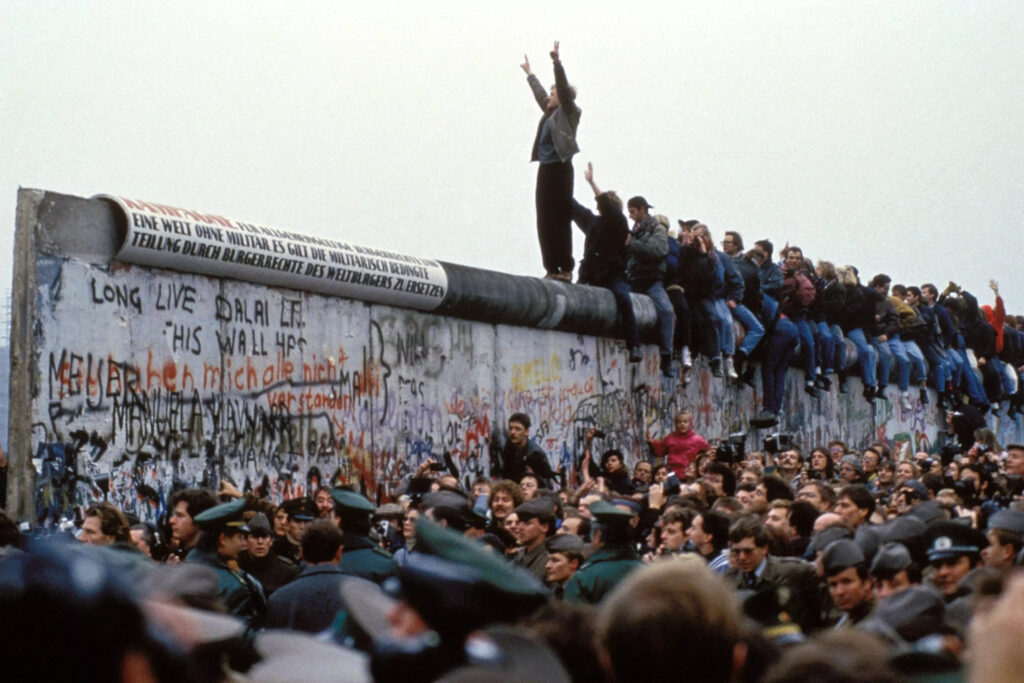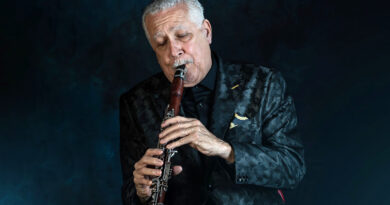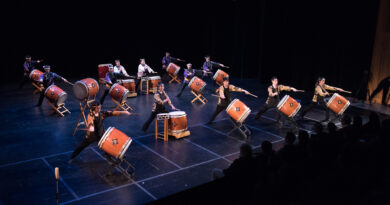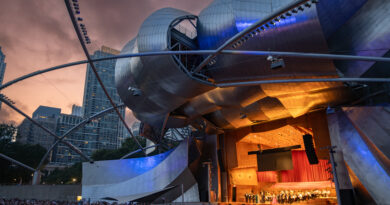Guarneri Hall Presents Concert Series on the 35th Anniversary of the Fall of the Berlin Wall
Chicago’s Guarneri Hall recently announced its new concert series, “Sounds of the Cold War,” a three-day event examining Cold War-era music from both sides of the Iron Curtain. Performances will take place on November 7th, 8th, and 9th, 2024, from 6:30 – 8:30 p.m.
35 years after its dismantling, the Berlin Wall continues to hold a place in memory as a symbol of the Cold War. The collective output of a generation of writers, artists, and musicians on both sides of the Iron Curtain reveals a complex and often unexpected mix of conflicted nationalist loyalties, ideological optimism, and artistic triumph in the face of profound challenge. The “Sounds of the Cold War” series seeks to illuminate the era’s musical tapestry, revealing intricate relationships between composers, influences, and creative movements.
The series will feature music by Hans Eisler, Dmitri Shostakovich, Sofia Gubaidulina, György Ligeti, and György Kurtág, with each event including commentary about the socio-political context for the music from distinguished guest speakers from the University of Chicago including Sociology Professor Andreas Glaeser, Graham School instructor Jennifer A. Lind, and associate professor of Political Science Paul Poast. Adding to the intimacy of these 60-seat chamber music events, each performance will be followed by a reception where audience members, performers, and scholars can engage in meaningful conversations.
The first performance on November7, 2024, “The Landscape of Exile,” will illuminate the music and story of Hanns Eisler (1989-1962), an German composer whose work is seldom heard in the U.S. The concert will examine his life between Nazi Germany, U.S. and East Germany. A German pre-war Communist, Eisler emigrated to the U.S. after his work was banned by the Nazi Party in 1933. In 1948, Eisler was blacklisted and deported from the U.S. He eventually settled in East Germany and would go on to write its national anthem, but would often find himself persona non grata, composing music deemed too experimental, difficult, and political for the Communist regime. Following the performance, University of Chicago Sociology Professor Andreas Glaeser will lead a discussion of 20th-century history and the politics reflected in the music of Eisler’s era.
The second performance on November 8, 2024, “Between Laughter and Tears,” will highlight the music of Dmitri Shostakovich (1906-1975) , a Russian political activist during the Cold War era. In 1960, Shostakovich composed two profoundly contrasting works that together demonstrate an incredible range of emotions. In Satires, Pictures of the Past, Op. 109, Shostakovich tested the limits of artistic freedom with parodies of old Russian tales and a sardonic polka to mock the absurdities of the Soviet bureaucracy. His next work, the String Quartet #8, was dedicated to the victims of fascism and war but further expresses the trauma Shostakovich felt after joining the Communist party. A third piece, Dance on a Tightrope, written in 1993 by Soviet-Russian composer Sofia Gubaidulina (b. 1933), rounds out the program and demonstrates the flourishing of music in the immediate post-Soviet era. Following the performance, University of Chicago Graham School instructor Jennifer A. Lind will discuss the events leading up to the building of the Berlin Wall in 1961, with emphasis on how everyday Germans and creative artists persevered throughout decades of authoritarian government.
The final performance of the series on November 9, 2024, ”A Tale of Two Worlds,” will feature the music of Hungarian composers György Ligeti (1923-2006) and György Kurtág (b. 1926) They met as prospective students of Béla Bartók at the Franz Liszt Academy in Budapest in 1946 and became lifelong friends, but each went on to forge independent artistic lives. In the wake of the Hungarian uprising of 1956, Ligeti fled Hungary and resettled in Vienna. He eventually took Austrian citizenship and spent the rest of his life living and working in the West. Kurtág, meanwhile, chose to return to Budapest following his studies in Paris in 1957-58, with most of his creative output coming from behind the Iron Curtain. University of Chicago’s Paul Poast will lead a discussion on the disparate ways Ligeti and Kurtág responded to Hungary’s Cold War climate, highlighting the tensions between artistic expression and political reality.
Guarneri Hall is located in the heart of downtown Chicago at 11 E. Adams Street. Named after the famous Italian family of luthiers whose prominence in violin making is equaled only by that of Stradivari, Guarneri Hall was founded in 2018 by esteemed violinist and violin dealer Stefan Hersh. For additional information on each of the three performances of the “Sounds of the Cold War” concert series, as well as ticket prices, please see guarnerihall.org.




